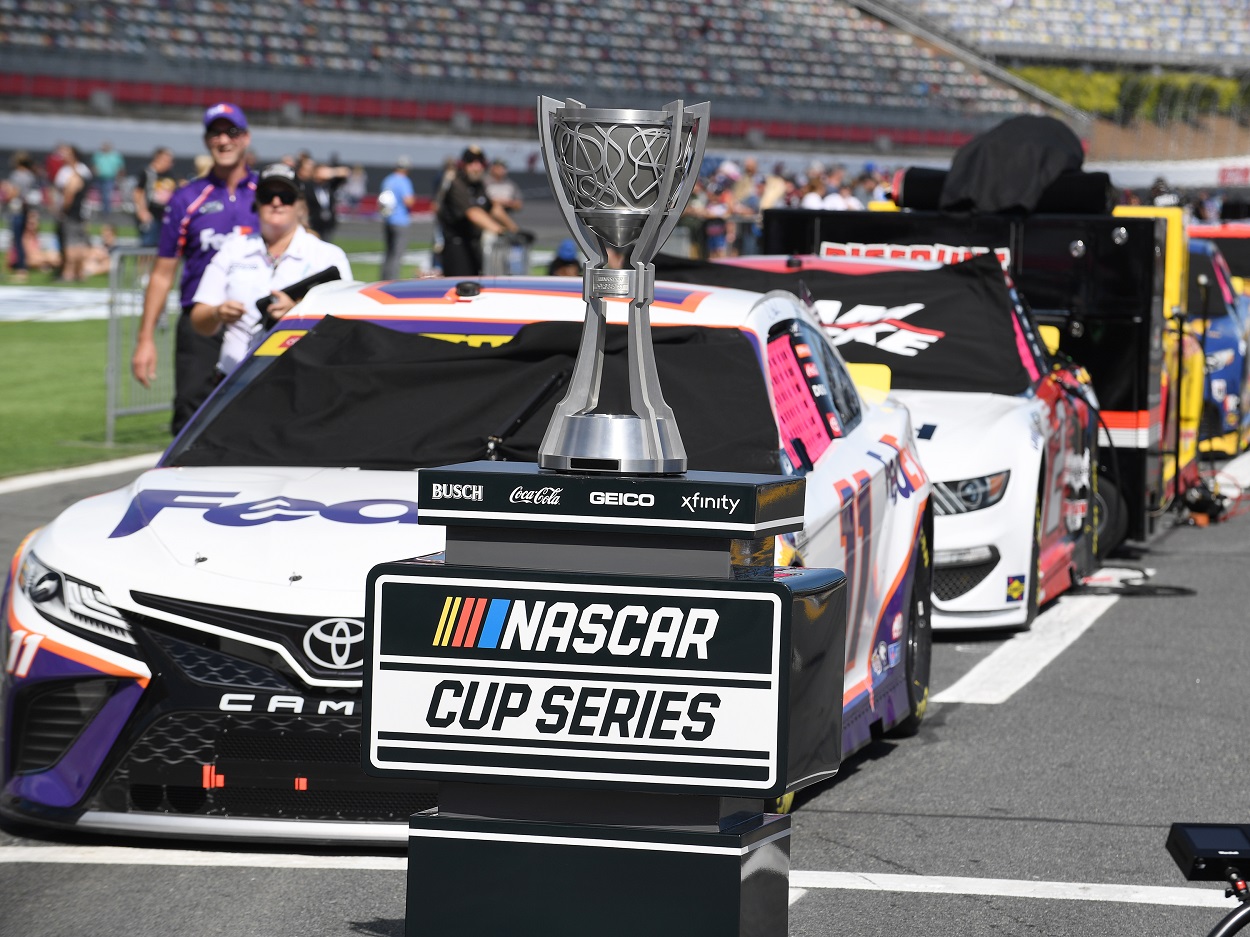NASCAR
Several Former NASCAR Cup Series Champions Are Already in Danger of Missing the Playoffs

One of the trademark characteristics of the 2022 NASCAR Cup Series season thus far has been the wide variety of race winners, including several who have earned their first victory in the premier series. But that has also filled up playoff spots typically held by the sport's traditional powers.
Rookie Austin Cindric won the Daytona 500 for his first Cup Series win. Chase Briscoe and Ross Chastain also notched the first victories of their respective careers within the season's first six points-paying races.
Former NASCAR Cup Series champs have struggled early in 2022

Defending 2021 Cup Series champion Kyle Larson won the second race of the season in late February at Auto Club Speedway, but the seven other former champions in the series have combined for a mere five top-five finishes.
Current points leader Chase Elliott and Joey Logano, who is third in points, each have one top-5, as does Kyle Busch despite his 11th-place position in the points standings. His brother, Kurt Busch, joins Larson as the only two former champions with two top-five finishes thus far.
Younger drivers on smaller teams such as Tyler Reddick at Richard Childress Racing, Daniel Suarez at Trackhouse Racing, and Erik Jones at Petty GMS Racing have already combined for as many top-5s as the entire group of winless former champions.
There are still 20 regular-season races left before the playoffs begin. Still, it might be a stretch to think all seven different former champs will win at least one of those races, especially since every driver in that group except Elliott is older than 30.
Chastain's win Sunday at the Circuit of the Americas in Austin extended the series' record-long streak of wins by drivers under age 30 to a dozen races. Denny Hamlin was the last driver at least 30 years old to win a Cup Series race when he took the checkered flag at age 40 in Vegas last October.
Next Gen car could be cause for older drivers' struggles
Part of the problem for the older drivers in the sport could be the Next Gen race car NASCAR introduced for the 2022 season. The new car is different from the previous model in several respects, including a new steering system, independent rear suspensions, and a sequential shifter.
The new shifting setup has already caused Hamlin to end a race early when he tried to downshift incorrectly at Las Vegas Motor Speedway. Hamlin completed only 219 of 274 laps and finished 32nd.
Brad Keselowski, the 2012 champion, is at the bottom of the former-champions group in 34th place. Part of his trouble stems from a 100-point penalty he and his No. 6 team received on March 24 after it allegedly modified a part on the new Next Gen car. However, Keselowski would still be in 17th without the penalty and outside the 16-driver cutoff for the playoffs.
The other former champions are all still within the 16th-place cutoff at this point, but the Busch brothers and Kevin Harvick hold three of the final four spots and are all within 11 points of being outside of the cutoff.
The variety of tracks on the 2022 NASCAR schedule could also hinder older drivers
Another potential roadblock for more experienced drivers is the large number of different types of race tracks on the schedule. Intermediate ovals from 1.5 miles to 2.0 miles made up the vast majority of the Cup Series slate in previous years, but NASCAR visited new tracks in new markets in 2021 and has done much the same for 2022.
Ovals of 1.5 or 2.0 miles account for only four of the remaining 20 regular-season races. Even the race in July at the 1.54-mile Atlanta Motor Speedway could be considered a superspeedway after a recent reconfiguration drastically changed the type of racing there.
Big organizations such as Joe Gibbs Racing or Team Penske used to be able to count on success at those intermediate tracks because of how much engineering and aerodynamics knowledge mattered in those races.
That is no longer the case as teams now have to navigate multiple superspeedways, short tracks, and road courses on the way to the playoffs.
Sure, some of the former champions will likely win at least one race and once again fill a portion of the playoff field. But the 2022 edition of the NASCAR Playoffs is on track to feature more drivers than ever who have never hoisted the trophy for the sport's biggest prize.
All stats courtesy of Racing Reference.











